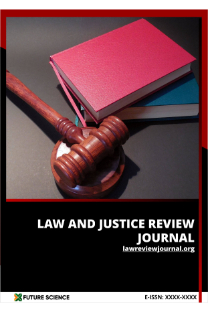Vergi̇ Antlaşmalarından Kaynaklanan Uyuşmazlıkların Çözümlenmesi̇ ve Tahkim
Ulusal ekonomilerin ve pazarların entegrasyonu (bütünleşmesi) son yıllarda büyük ölçüde artmıştır. Bu durum çok daha önce tasarlanmış olan ulusal ve uluslararası vergi kuralları üzerinde ciddi bir baskı oluşturmaya başlamıştır. OECD Model Vergi Sözleşmesinin 25. Maddesinde düzenleme konusu yapılmış olan Karşılıklı anlaşma usulü, uluslararası vergi uyuşmazlıklarında bir mekanizma olarak kullanılmaktadır. Karşılıklı Anlaşma Usulü yetkili vergi idareleri arasında sözleşmenin uygulanmasından kaynaklanan yorum farklılıkları ve diğer zorlukların çözümünde bir önemli bir imkan sağlamaktadır. Başka bir deyişle karşılık anlaşma usulü vergi idareleri tarafından, uluslararası vergi uyuşmazlıklarının çözümünde de etkin bir yol olarak benimsenmiştir. Bu uyuşmazlıklar Ekonomik ve Hukuki çifte vergilendirme yanında sözleşmenin yorumlanması ve uygulanmasından kaynaklanan farklılıkları da içermektedir. Ancak bazı uyuşmazlıklar bu usul tarafından çözülememektedir. Bu anlaşmazlıklar, anlaşmaya bağlı olarak ülkelerin belli bir konuda farklı hareket etmelerinden kaynaklanmaktadır. Bu da sözleşmeye uygun olmayan çifte vergilendirme (lerin) ortaya çıkmasına neden olmaktadır. Ayrıca bu durum mekanizmaya ( karşılıklı anlaşma usulüne ) bir takım yöneltilmektedir. Özellikle eleştiriler, mekanizmanın uygulanmasında mükellefin prosedüre dahil edilmemesi ( veya zayıf konumu) ve yetkili vergi idarelerinin anlaşmaya varmak konusunda kendilerini zorunlu görmemelerine karşı yöneltilmektedir. Bu eleştiriler tahkimin (özellikle zorunlu tahkimin) vergi antlaşmalarına bir ek olarak konulmasını sağlamış ve zaman içerisinde yaygınlaşmasına neden olmuştur.
TAX RESOULUTION OF TAX TREATY DISPUTES AND ARBITRATION
The integration of national economies andmarkets has increased substantially in recentyears, putting a strain on the domestic andinternational tax rules which were designed along time ago.In the International tax disputes, Article 25 ofthe OECD Model Tax Convention providesa mechanism(Mutual Agreement Procudure-MAP), through which competent authorities ofthe contracting states may resolve differenceor difficulties regarding the interpretation orapplication of the Convention on a mutuallyagreed basis. The Mutual Agreement Procedure(MAP) article in tax conventions allows,designated representatives (the competentauthorities) from governments of the contractingstates to interact with the intent to resolveinternational tax disputes. These disputes involvecases of double taxation (juridical and economic)as well as in consistencies in the interpretationand application of a convention.But some cases are not solved by MAP. Thesecases will typically arise when the countriesinvolved cannot agree in a particular situationthat the transaction by both states in accordancewith the treaty. Since the MAP as currentlystructured doesn’t require the countries to cometo a common understanding of the treaty, butonly that they endeavour to agree, the result canbe unrelieved double taxation or “taxation notaccording to with Convention” where countriescannot agree .In addition the specific case MAP hasnevertheless attracted much criticism due tothe weak position of the taxpayer, who is nota party to the procedure, and the fact that thecompetent authorities are not under obligationto reach an agreement. The criticism has led tothe increasing adaptation of arbitration clauses intax treaties that provide for mandatory arbitration
___
- Hugh J. AULT, Improving The Resolution of International Tax Disputes, Florida Tax Review, 2005, Volume 7, Number 3.
- Chole BURNETT , International Tax Arbitration, AT. Rev, 2007.
- DESAX Marcus, Mare VEIT, Arbitration of Tax Treaty Disputes: The OECD Proposal, Arbitration International , 2007, VOl.23, No.3.
- OORTWIJN J .Harm, Dispute Resolution in Cross-Border Tax Matters, IBFD, European Taxation, April 2016,
- DUFFY Joe, Tomas BAILEY, the Case for Mandatory Binding Arbitration in International Tax, 2016, Number 2GANGULY Maya, Tribunals and Taxation: An Investigation of Arbitration in Recent US Tax Conventions, Wisconsin International Law Journal, Vol.29,No.4.
- IBFD, International Tax Glossary, Seventh Revised Edition, 2015.
- ISMER Roland, Sophia PIOTROWSKI, A Bit Too Much: or How Best to Resolve Tax Treaty Disputes, INTERTAX, 2016, Volume 44, Issue 5.
- LANG Micheal, Pasquale PISTONE, Josef SCHUCH, Clauss STARINGER, The Impact of the OECD and UN MODEL Conventions on Bilateral Tax Treaties, Cambridge, 2012.
- LANG Micheal LANG, Jeffery OWENS, International Arbitration in Tax Matters, IBFD, 2015
- MARKHAM Michelle, Mandatory Binding Arbitration – Is This A Pathway to More Efficient MAP? Arbitration International, December 2015, Oxford University Press.
- OECD Commentary on Article 25 Concerning the Mutual Agreement Procedure.
- OECD, Draft, BEPS Action 14: Make Dispute Resolution Mechanism More Effective.
- OECD: Base Erosion and Profit Shifting Project – Making Dispute Resolution Mechanisms More Effective ACTION 14: 2015
- OECD Improving The Resolution of Tax Treaty Disputes, February 2007.,
- OECD Model Commentary art. 25. para.6
- OECD, BEPS ACTION 14: Make Dispute Resolution Mechanisms More Effective (Draft), 2015.
- OECD Dispute Resolution-Annes 3-Glossary (http://oecd.org/ctp/dispute/ annes3-glossary.thm, 05.08.2016
- OECD, Manuel on Effective Mutual Agreement Procedures (MEMAP), February 2007 Version.
- OECD, Manuel on Effective Mutual Agreement Procedures (MEMAP).
- OECD, Base Erosion and Profit Shifting Project,-Making Dispute Resolution Mechanisms More Effective – ACTION 14, 2015 Final Report,
- OECD Public Discussion Draft, BEPS Action 14: Make Dispute Resolution Mechanisms More Effective,
- OECD Commentary on Article 25 Concerning the Mutual Agreement Procedure.
- PARK W William W., David R. TILLINGHAST, Income Tax Treaty Arbitration, 2004, Fiskale en Financiele Uitgevers, Amersfoort, 2004.
- PROTTO Carlos, Mutual Agreement Procedures in Tax Treaties:Problems and Needs in Developing Countries, İNTERTAX, Volume 42, Issue 3, p.178.
- RUST Alexander, Double Taxation within the European Union, Wolters Kluwer, 2011, The Netherlands.
- SASSEVILLE Jacques, Resolving Issues That Prevent A Mutual Agreement: Supplementary Mechanisms For Dispute Resolution, Committee of Experts on International Cooperation in Tax Matters, Geneva , October 2008.
- United Nations (UN) – Guide to the Mutual Agreement Procedure Under Tax Treaties, 2011.
- United Nations, United Nations Double Taxation Convention Between Developed and Developing Countries, New York, 2011.
- WAINLYMER Jeffory, Procedure and Evidence in International Arbitration, Wolters Kluwer, 2012,The Netherlands
- ISSN: 1309-9485
- Yayın Aralığı: 2
- Başlangıç: 2010
- Yayıncı: Türkiye Adalet Akademisi
Sayıdaki Diğer Makaleler
Vergi̇ Antlaşmalarından Kaynaklanan Uyuşmazlıkların Çözümlenmesi̇ ve Tahkim
Gerekli Kötülük? Yeni Kötülük Yaratmak İçin! Şüpheli Teröristlere İşkence Uygulanması
Bitcoin Devrimi ve Bazı Devletlerin Uygulamalarında Yasaların Karmaşıklığı
Lotus Görüşü’nün Gelişimi ve Geçerliliğini Sürdürmesi Üzerine Bir İnceleme
